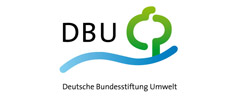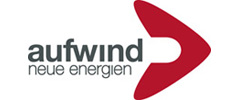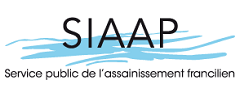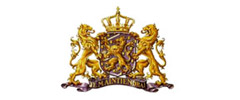Georgian small-scale water supplies polluted with coliform bacteria
Testing bacterial contamination of water with a portable laboratory is now possible in Georgian rural areas
22.09.2014 |WECF

Training on how to use the portable laboratory Potakit of WagTech
The company Palintest donated to WECF one of its own manufactured portable water quality laboratories, the Wagtech Potakit, and enabled herewith WECF and partner to conduct the most relevant bacterial and chemical analyses in water samples. In particular in rural areas of Georgia the quality of small-scale water supplies is rarely or not monitored at all and people are not aware on the safety of their water.
Samples of 3 centralised water supplies and from 7 individual wells in the villages Khamiskuri and Khorga were taken and analysed, as well two bottled mineral waters.
As indicators for environmental pollution the chemical parameters nitrate, nitrite and ammonia, furthermore the pH and the conductivity were measured and as indicator for microbiological pollution the Total Coliform bacteria. Total Coliform bacteria in water can originate from animal and human excreta as well from soil. The drinking water directive of the European Union indicates for the Total Coliform bacteria a value of 0 per 100 ml drinking water.
Results
None of the analysed water samples exceeded the established limits for Nitrate, Nitrite, Ammonia, pH and conductivity, however the results for the Total Coliform bacteria were partly shocking.
The centralised water supply in Khamiskuri, which serves 1200 people, was contaminated with more than 1000 Total Coliform bacteria per 100 ml water.
Another small-scale water supply in Khamiskuri serving 38 households exceeded with more than 100 Total Coliforms the parametric value of 0/ 100 ml.
All the tested wells showed Total Coliform bacteria from 35 up to more than 100 and due to the high density of the colonies partly not countable.
Only the two bottled mineral waters and the sample from the centralised water supply in Khorga met the standard of 0 per 100 ml water for Total Coliform bacteria.

Yellow spots indicating Total Coliform bacteria in a water sample
Identified problems
The water for the two unsafe centralised supplies in Khamiskuri is abstracted from the mountains. It was told that the reservoirs and the pipes are not maintained, not cleaned and water is not disinfected by chlorination. Indeed the chlorine test showed no chlorine in the water sample.
All the visited and tested wells are in a very bad state. All wells were lacking a cover; the wells were lacking a concrete apron or the concrete apron was cracked. The upper part of some wells were of oxidising metal reservoir or from cracked concrete
Most of the wells were used for drinking water purposes.

Example of a bad maintained well in Khorga and used as a source for drinking water
Perspective
The authorities of Khamiskuri were immediately informed about the local unsafe centralised supplied water. The results of the tests were discussed at the municipal meeting in Khobi to define the ways and develop action plan for improving the situation with drinking water. The authorities intend to investigate the condition of the water abstraction and reservoirs;
In the target villages Khorga and Chaladidi, Water and Sanitation Safety Plans will be developed to improve the drinking water situation
In the future, the resource centre in Khamiskuri will provide the service of water quality tests. Wells and water supplies will be monitored in particular on faecal bacteria (Thermo tolerant coliforms and Total Coliforms; recommendation on the elimination of faecal bacteria in the environment e.g. by a safe management of human and animal excreta, will be provided, as well on operation and maintenance of individual small-scale supplies.
These activities were carried out in the frame of the project “Managing Wastewater through Global Partnership - Reducing the pollution of the Black Sea” by introducing sustainable wastewater and nutrient management in rural Georgian communities, supported by the Global Wastewater Initiative, by the United Nations Environment Programme (UNEP).
Related News
Together for sustainable sanitation and water security worldwide!
Stockholm, 26-31 Aug 2018: WECF participated in the World Water Week 2018 to further support the worldwide implementation of SDG 6
01.09.2018
World Water Day 2018!
22.03.2018
WECF presents Water and Sanitation Safety Plans to African, South American and Asian officials and stakeholders
WECF held a one day training on Water and Sanitation Safety Plans (WSSP) at Technical University of Dresden
17.10.2016
UNEP highlights WECF project in Black Sea on new homepage
The United Nations Environment Programme (UNEP) lists the WECF project in Georgia on their new homepage as a "Success Story".
04.05.2016 | WECF







































